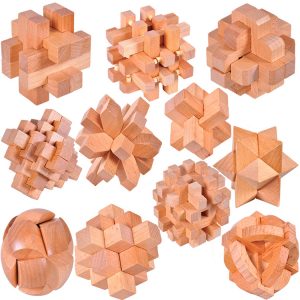People have long familiar that puzzles present many advantages for children as they grow. Children generally blast off with easy gnarled puzzles that are defines of easy shapes that fit into comparable board supplants. From there they go to more compound outlines of actual world objects that take more deliberation. The final step that people take with puzzles is generally to jigsaw puzzles of the different problem. The user is directed to an image they collect and every time you finish with the similar result. We are here today to write about the advantages of wooden Japanese puzzle for your child as they develop, and offer a step beyond jigsaw puzzles that are found at kigumi.
When your child is alone with a puzzle you can come across some primary skills to be built:
Physical Skills: from holding puzzle pieces and turning them until they are good enough to fit.
Cognitive Skills: as they resolve the issues of a puzzle. Puzzles come in an intact range of themes and topics such as alphabet letters, shapes, vegetables, numbers, pets, transport and colours. It develops their optical particular consciousness and grows an in-depth understanding of these themes and topics. All children are educated differently and puzzles may be their channel for demanding an understanding of specific themes such as alphabet letters.
Emotional Skills: they learn resistance and give a bounty to when they complete the puzzle.

Issue Resolving: Completing a puzzle, even the easiest of puzzles sets a single aim to attain. Toddlers and children must think and grow policy on how to advance towards in reaching this aim. This procedure involves issue resolving, cogitating skills and increasing resolutions which they can later be shifted into their private/adult life.
Fine Motor Development: Puzzles are an enjoyable way for children to grow and improve their fine motor skills. When busy in playing with puzzles, children are needed to pick up, pinch and hold pieces and move them around, handling them into slots, categorizing them and fitting them into the appropriate places.
Hand and eye Coordination: Playing with puzzles needs an analysis process which comprises a lot of hands and eye manipulation. For instance, as a toddler or child puts a piece of the puzzle that does not fit, they will attempt all over again where their work involves doing what they actually notice.
Self-Confidence: The achievement of attaining an objective brings so much pleasure to a child. Triumphing over the challenges involved in resolving a puzzle surely provides them a sense of attainment and pride within themselves. It gives a boost to their self-confidence and self-esteem as this prepares them for other challenges in life.
Additionally, these basics, doing a puzzle with a friend or family member also permits for the development of social skills as they work together and be in touch about what suits where. This is a small point as roughly any activity done with more than one person will have this advantage. Japanese Wooden Puzzles are a fun educational toy that challenges young minds, teaching and making them ready for their early in life some very essential and significant life skills.




